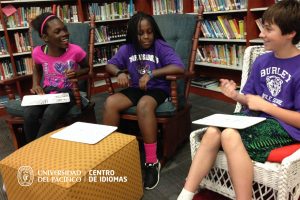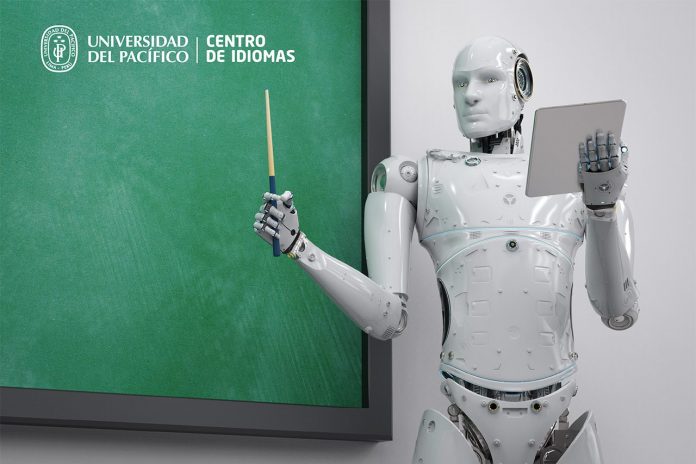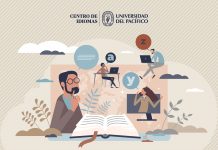In the field of learning foreign languages, as in studying in general, we see that the student’s profile is already completely different and continues to change at great speed. That is one more reason for us teachers to change our methods and ways to do things in and out of the classroom.
“If we don’t change the way we teach, we’ll be in trouble,” has recently said Jack Ma, founder of Alibaba Group, China’s e-commerce giant. The World Summit for Innovation in Education (Wise, in English), a think tank made up of 15,000 scholars, tells us that students have much more access to sources of knowledge, with a more universal and less localist mentality.
Among other things, we know that the student is the undisputed protagonist of his learning, who seeks through instruction a way to respond to some needs of the natural world. The Internet is beginning to turn schools into “interactive environments”, something that will turn traditional learning ways upside down and change the way of teaching, parents and students.
Peter Senge of MIT states that the main problem of the education system is that it is based on the Industrial Revolution model, a passive learning model, in which teachers speak and students remain seated and quiet, “as when training people to work in a factory.” This is not accepted by the students of today.
We must realize that the border between school and home has begun to dilute and learning is no longer necessarily restricted to a few hours and specific places. Now you can take classes wherever you are and whenever you wish or can. Electronic and technology make it possible.
Email and social networks continue spreading far and wide. Now the teachers already have many conversations with the students for example at 8:00 or 10:00 pm. Courses are more and more offered and taken.
We also become aware of the growing tendency for the curriculum to have more personalized content tailored to each student. César García, a professor at Washington State Public University, adds that students are being “more demanding” in terms of their educational expectations. This certainly applies to English teachers. And this fact is also having consequences in the hierarchical relationship with the teacher. The line that separates who teaches and who learns is getting blurred.
The majority of people in the field think that the role of teachers will be to guide the student in their own way of knowledge, at their own pace. They will be facilitators and counselors, rather than transmitters of knowledge. For Ignacio Sánchez, President of the Catholic University of Chile, nothing can replace the teacher’s personal contact with his student, although techno-hours can certainly “support the teaching-learning process.” For the students there will be more independence and greater orientation. As the teacher becomes a student guide, the master class will disappear. Learning will be personalized, permanent and probably more expensive. Skills will prevail over academic knowledge

The new role of teachers
Some say that the role of teachers will be even more relevant. “They are going to have to show students that they have to be critical of the information, that not everything they find on the internet is correct, that they should select and go to the most reliable sources, ”says Ismael Sanz, director of the Instituto Nacional de Evaluacion Educativa, under the Peruvian Ministry of Education. Many educators believe that personal or practical skills will be more valued than academic knowledge. The so-called soft skills, such as the ability to speak in public, to work in a team, or to adapt to unforeseen events are being given increasing importance. Learning is becoming more natural, real and holistic.
Children move at different speeds now. For decades children have been led to believe that not being able to advance at the pace set by the school is synonymous with being silly. And this is nonsense. British pedagogue and lecturer Ken Robinson criticizes that schools kill creativity. Teachers are in a position of authority and can do a lot of damage if they don’t realize the impact their messages can have.
Even the design of the classrooms will change a lot in the coming years, open classrooms surrounded by small offices that students occupy to work in small groups. Tables and chairs will have wheels to take them from side to side.
Teachers need to realize and take on the challenge of not being the only source of information, and interact with the multiple sources students use. Language learning should be practical, rather than academic. In this era of constant transformations at the technological and cultural level, teachers face great challenges, since they must educate today without losing sight of the future of their students who are in need of acquiring real-world communication skills.
The idea that teachers have the answers and that is why they lead the learning is no longer useful. No one knows how problems that already affect us today will be resolved, such as climate change. It is necessary to create an environment in which everyone learns: teachers, students and parents. The 21st century teacher has to teach what he doesn’t know. Get a 12-year-old child to understand why there are drug addiction problems in his neighborhood. We seem to have forgotten that rather than filling our students’ heads of knowledge, we have to teach them to think.
For Fabiola León Velarde, President of the Universidad Cayetano Heredia del Peru, and president of the National Council of Science, Technology and Technological Innovation (CONCYTEC), “teachers of the future must accompany the student to the appropriation and transformation of knowledge; they must combine face-to-face and virtual technologies, local experiences with global experiences, and incorporate an interdisciplinary approach into their disciplines.”
León Velarde says that “to the extent that teachers adopt attitudes and ways of thinking, feeling, acting and relating according to new skills and new technologies, it will be possible for students to develop their new roles towards the society.”
And you, have you already begun your transformation?










